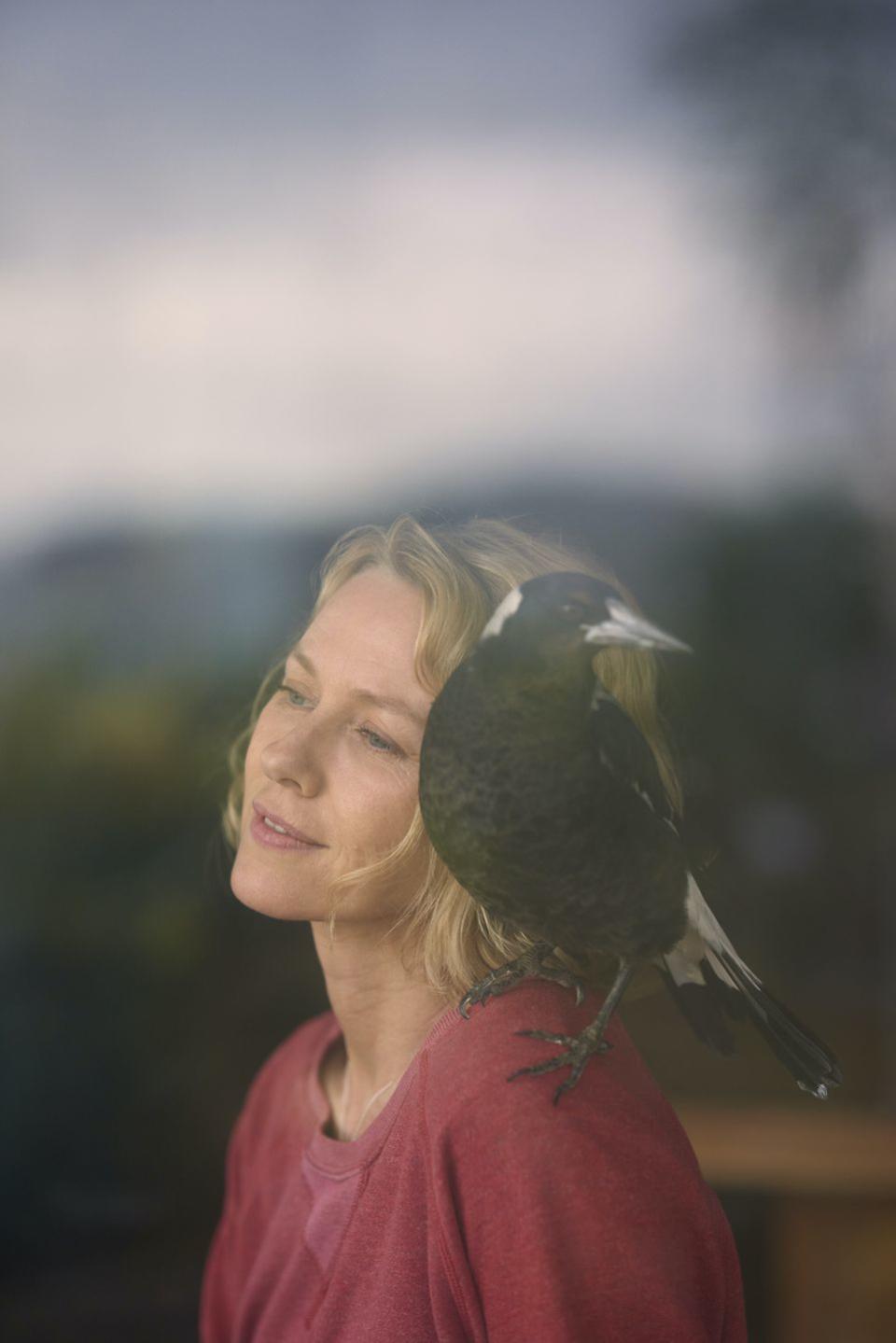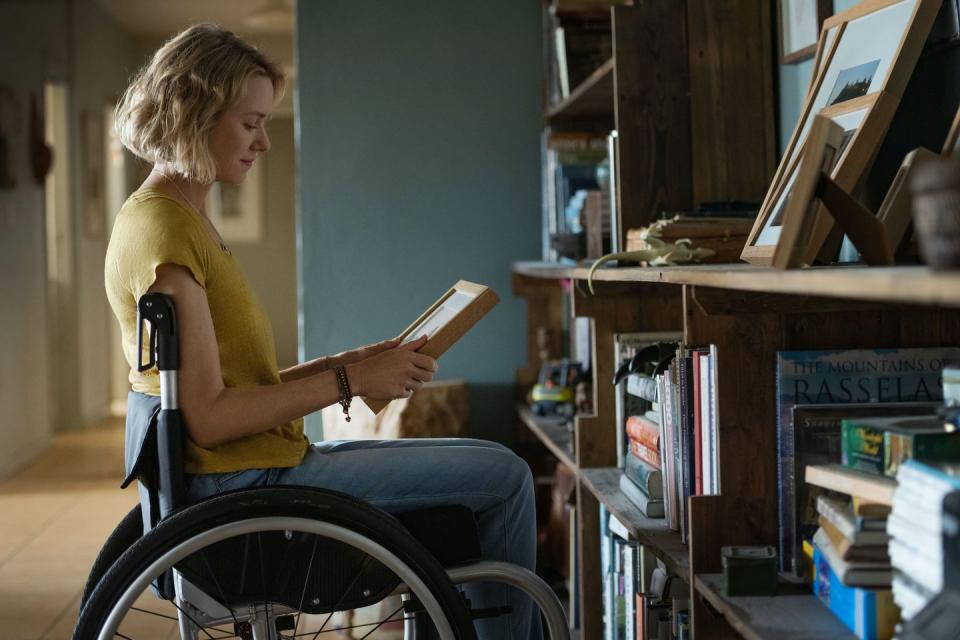The Walking Dead star Andrew Lincoln's Netflix movie missed an opportunity for disability representation

Penguin Bloom, a new Netflix film starring The Walking Dead's Andrew Lincoln explores the tumultuous journey many disabled people take to embracing their disability. And, yet again, filmmakers have effectively erased disabled people from the narrative.
Penguin Bloom tells the story of Sam Bloom, who becomes a paralysed wheelchair user after a fall. Alongside her husband and children, she takes solace in caring for an injured magpie, which the children name Penguin.
The film, based on a true story written by Cameron Bloom and Bradley Trevor Greive, could have spotlighted the real tragedy, beauty and love present throughout the journey of embracing a disability. However, Naomi Watts stars as Sam, yet another non-disabled actor stealing a role from a disabled actor, joining countless others in prioritising the casting of big-name actors over authenticity.

Related: Doctor Who's new companion casting was a missed opportunity for disability representation
By casting a non-disabled actor in the role, the film becomes inspiration porn for the non-disabled masses to feel good about themselves.
Inspiration porn – a term coined by disability activist Stella Young in 2012 – is a lot less fun than it sounds. In short, it is the depiction of disabled people as inspirational on the basis of their disability. Although this may not seem like a problem to some, the portrayal of disabled people as tools of inspiration strips them of their humanity and encourages non-disabled people to infantilize, patronize and objectify disabled folk in real life.
Recently, Sia committed this casting sin in her film Music (2021) which has since been torn to shreds by the autistic community, but this is far from the only example. Actors like Daniel Day-Lewis and Eddie Redmayne have won Oscars for "cripping up" in My Left Foot (1989) and The Theory of Everything (2014) respectively and Jake Gyllenhaal and Andrew Garfield won acclaim for performances in Stronger (2017) and Breathe (2017), so it's not particularly shocking that actors flock to these roles.

Non-disabled actors "cripping up" ensures awards buzz for the gold gongs, and is likely a factor in why conversations around disability representation are yet to break into the larger cultural zeitgeist.
The trend of erasing disabled actors has gone on for decades with little sign of the industry acknowledging the damage it does. Penguin Bloom's imminent release proves that the film world remains uninterested in correcting past mistakes by prioritising authentic representations of the disabled community.
Regardless of how good the intentions are behind these films, casting producers undermine their potential by erasing the disabled people who are the foundation of these narratives. It does not matter if an actor spends months prepping for a role to sympathise with the disabled experience, the film will damage the disabled community because disabled people have been prevented from telling their own stories.

Related: How Casualty's special Jade Lovall episode proves the importance of representation behind the camera
It is especially important for non-disabled actors to step back from these roles because they are extremely limited. Only approximately 2.7% of characters with speaking roles are disabled, in comparison to a global population of one billion disabled people.
By casting non-disabled actors in disabled roles, which are also rarely written or directed by disabled people, filmmakers guarantee that the depiction will be at best limited and at worst reduced to a caricature created by someone lacking a genuine understanding of disability.
The usual excuse for casting non-disabled actors in roles like that of Sam Bloom is that the character is depicted before and after becoming disabled. There is no denying that capturing the transition from non-disabled to disabled would be more complicated if the actor were a wheelchair user. Yet that is no excuse for ignorant casting.

After all, disabled actors who can walk but also need to use a wheelchair do exist (like (Years and Years' Ruth Madeley or Run's Kiera Allen to name two) and could be cast in Naomi Watt's role and given audiences an authentic portrayal of disability.
Non-disabled people – who are accustomed to seeing their experiences depicted on screen – often dismiss arguments against casting non-disabled people in disabled roles by flippantly stating that it's just acting.
It is not just acting when non-disabled actors are stealing roles that are a rarity. It is not just acting when a neurotypical actor mimics the behaviours of a neurodivergent person. It is not just acting when a film studio is willing to spend money making actors look disabled but not on making their sets accessible for disabled actors. It is ableism.

Some filmmakers have contributed positively to disabled representation, like in Run and Christmas Ever After, (not to mention documentaries Rising Phoenix and Crip Camp) but it is not enough. The old adage that any press is good press is false when it comes to the representation of marginalised communities on screen.
Until filmmakers actively include disabled performers, writers and directors, inspiration porn will prevail and the disabled community will languish without true depictions of their lives. We have no doubt that Naomi Watts will deliver a strong performance in Penguin Bloom because she is a quality actor, but this is not a question of talent, it is about whether she should be there in the first place.
The answer is simple: no, she should not. Instead of getting out of the way for a disabled actor, ignorance has prevailed and Penguin Bloom will join an overflowing archive of disabled misrepresentation.
Penguin Bloom is available on Netflix from January 27.
Digital Spy has launched its first-ever digital magazine with exclusive features, interviews, and videos. Check it out with a 1-month free trial, only on Apple News+.
Interested in Digital Spy's weekly newsletter? Sign up to get it sent straight to your inbox – and don't forget to join our Watch This Facebook Group for daily TV recommendations and discussions with other readers.
You Might Also Like

 Yahoo Movies
Yahoo Movies 
